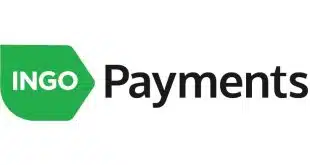If mobile-payments services are finding a niche anywhere right now, it appears to be in the market for digital goods like games and social-network applications. Palo Alto, Calf.-based Zong Inc., which began operations last year, announced this week that the processing platform it shares with its parent company, Echovox Inc., has added 10 million unique users since the first of the year, the bulk of them in Europe and North America. While the company refuses to break out this number for Zong specifically, Hill Ferguson, vice president of product management and marketing at Zong, tells Digital Transactions News the new service is clearly driving the platform's growth. Until 2009, Echovox's platform, which provides services like mobile voting to media clients in Europe, had processed transactions for 15 million unique users since its founding in 2000. “The acceleration in our growth from the start of the year until now is largely due to Zong,” Ferguson says. Zong's growth spurt follows news earlier this summer that a rival service that handles mobile payments for online-game and social-network sites, Boku Inc., had expanded by acquiring two other mobile-commerce companies (Digital Transactions News, June 16). The two services work similarly. At checkout, the user types in his cell-phone number and receives a confirmation request to his phone. Once he texts a confirmation (Zong also sends and ask for entry of a one-time PIN), the transaction is booked and the customer sees a charge for the item on his mobile-phone bill. Leveraging Echovox's carrier connections, Zong has direct links to more than 100 mobile operators worldwide, with another 30 to 50 in the pipeline, Ferguson says. And like Boku, Zong is content right now to concentrate on digital downloads, an estimated $8 billion market among video-game and social-network sites and growing fast. “We're laser-focused on online gaming and virtual goods,” says Ferguson, a former executive with Yodlee Inc. and Yahoo Inc. He estimates between 200 and 300 apps on Facebook alone use Zong to handle payments. It's also available on MySpace and on gaming sites like Gaia Online and Outspark. Much of the reason for this focus lies in the economics of the market. In return for handling billing and bearing collection risk, mobile carriers extract fees from merchants ranging from 20% to 40% of the transaction. Meanwhile, Zong's average ticket is about $9, Ferguson says, while its fee ranges from 5% to 8%, depending on volume. Sellers of virtual goods can absorb these costs more readily than other merchants because they can replicate their “merchandise” at virtually no cost and have no shipping costs. The market also appeals to Zong because handset users who play online games and interact on social-network sites are typically committed and loyal consumers, leading to repeat transactions during long sessions that can last for hours at a time. “There's tons of growth there, and high engagement factors,” Ferguson says. “You're immersed in that action.” Users could rely on credit or debit cards, but entering a mobile-phone number is easier and less distracting, Ferguson says. “It's a lot easier to type 10 digits you know by heart than to reach for your wallet,” he notes.
Check Also
QorPay Adds Services From Visa’s Cybersource to Its Payments Menu
QorPay Inc. reported Thursday that it has integrated its payment technology with Visa Inc.’s Cybersource …




